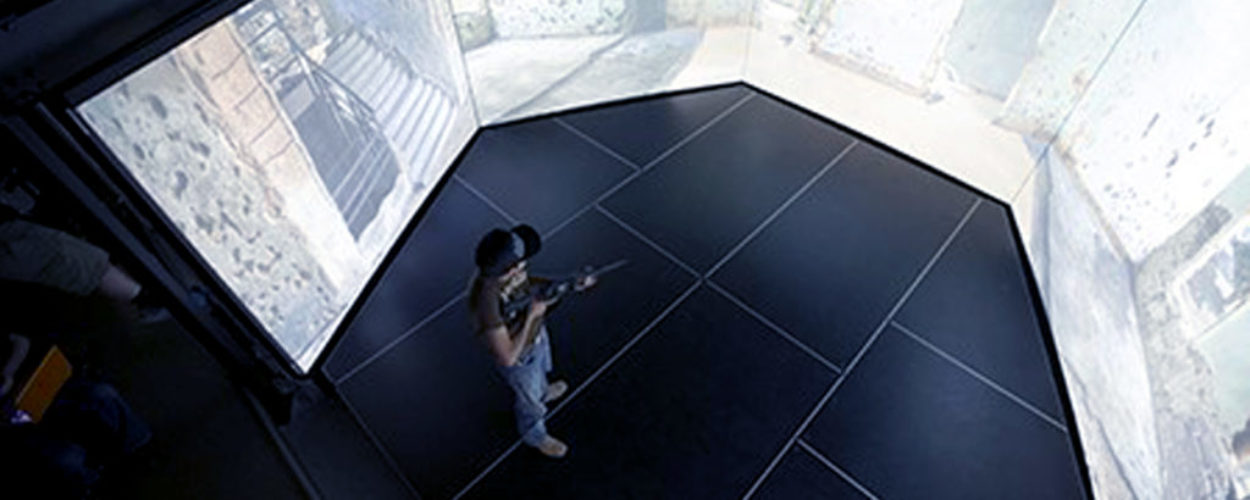
College is a time of learning, growth, discovery, and for many budding law enforcement officers, an opportunity to receive a taste of what life on the force entails. As technology becomes more integrated into classrooms, many Criminal Justice programs have incorporated decision-making and firearms simulators into their curriculum. This provides students with a more hands-on education.
Integrating VirTra in the Classroom
Northwest College in Powell, Wyoming is one of the many colleges that use VirTra simulators in their programs. However, they were a very early adopter of this progressive technology of VirTra’s simulators since almost a decade ago. Dave Patterson, one of the Criminal Justice Instructors, is a former 20 year law enforcement and SWAT officer who specialized in firearm case law and instruction. Now an Instructor, Patterson has seen some incredible changes upon integrating VirTra technology. This is especially true with his recent upgrade enhancement and new V-VICTA curriculum he integrates into the curriculum.
Patterson utilizes the immersive, five-screen V-300® to teach his courses: Firearms 1, 2 and 3. These courses range from introductory firearm practices and principles to an intermediate demonstration and understanding of critical judgment and weapon handling in stressful situations. The 300-degree simulator tests and trains trainee’s knowledge and physical skills through scenarios and marksmanship courses.
For Patterson, most of the focus is on marksmanship. Each class meets three days each week for 16 weeks, receiving hundreds of hours of practice and instruction by the semester’s end. To pass the class, students must pass a practical examination on maintenance and perform on the State Peace Officer Standard and Training (POST) pistol course at an 80% standard.
According to Patterson, in order to show transferability to actual firearms performance, his staff conducts end-of-semester live fire tests at an outdoor range. The students practiced learning on the V-300 simulator all semester using CO2 and drop-in laser recoil kits. Then they handled a loaded live gun and practiced aiming at physical targets.
The remarkable part of this story is how during Patterson’s 2018 Fall and Spring semesters, roughly 70% of his students began with little or no pistol experience prior to the course. But by the end of the semester, the average on-range POST score was over 90%. Through extensive practice and use of VirTra’s simulation, students learned transferrable skills at a higher percentage than expected and in years prior.
The Benefits of System Upgrades
Recently, Patterson upgraded his real-world V-300 system with the latest hardware and software. “When the upgrade occurred, functionality had increased. Students were able to push through the course faster,” said Patterson. “What was originally a class of eight bumped up to twelve. I may be able to eliminate an entire class due to students cycling through the course faster.”
By potentially consolidating three courses into two, this will save money for the school and students while increasing class size to accommodate more who want to learn.
Like other VirTra customers, Patterson upgraded his legacy system after five years to receive the latest hardware and software improvements. This update has allowed him to maximize training and classroom learning. The software update included the latest V-VICTA® training curriculum, IADLEST-certified coursework, which covers a variety of Law Enforcement topics. For Patterson, his most-utilized courses are Contact & Cover, Dog Behaviors, Axon® TASER® training and case law.
As for the hardware update, this included the latest version of the Threat-Fire® consequence device. This small electric impulse device provides immediate consequences during training, often helping participants understand the potential personal harm. Patterson regards the Threat-Fire as a powerful teaching tool, noting, “Everyone thought it wasn’t real until they tried on the Threat-Fire.” This pain penalty assists Patterson’s students in taking the simulator seriously, thus focusing on learning skills transferrable to real life.
VirTra’s powerful, real-world scenarios increase training, learning and understanding in college classrooms just as they do in departments worldwide. Upgrades on legacy systems allow agencies to experience the latest software and hardware for a more immersive, accurate experience. For Patterson, it also gave the bonus of expediting students through the courses, better qualification scores and excitement to take the course resulting in the need for class expansion. For more information on training with VirTra, contact us.
Recently Published
Join Our Newsletter







